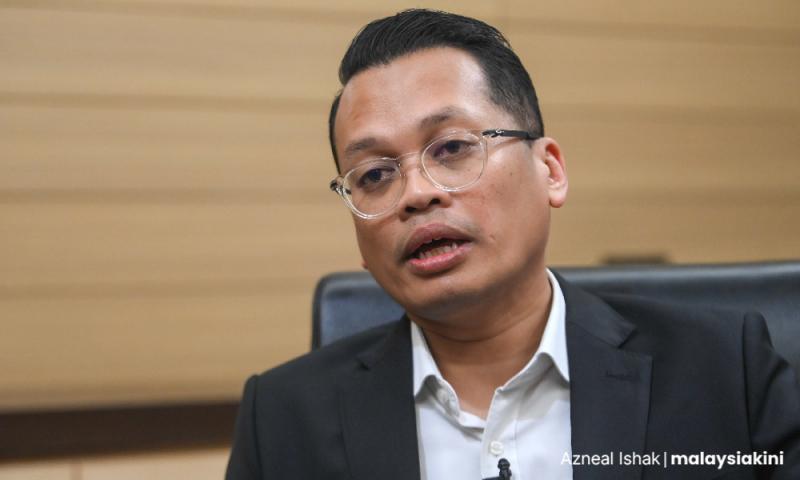MP SPEAKS | Don't squander Loss and Damage victory at COP28
MP SPEAKS | Malaysia stands on the frontlines of climate change. But today I write not only as a representative of Malaysia but also as a voice for countless others across the Global South who find themselves in a similar predicament.
That’s because earlier this month, one of the most consequential climate meetings in history took place in Abu Dhabi, resulting in the first major breakthrough in operationalising a climate Loss and Damage Fund.
Thanks to the convening power of the UAE’s COP28 presidency, and the diplomatic leadership of Dr Sultan Al Jaber, negotiations that were on the brink of collapse were salvaged.
For the first time, a tentative agreement was reached that would allow climate-vulnerable countries to receive financial support.
Getting to this point was not easy. The previous year’s negotiations at COP27 in Egypt ended in a deadlock over how the Loss and Damage Fund would work.
Malaysia itself supported the decision at COP27 to make operationalising the fund a permanent agenda item at COP28.
Unfortunately, the US and other wealthy nations ignited a firestorm of outrage among G7 nations by proposing the World Bank host the fund.
The US-headquartered World Bank is renowned for being sluggishly slow on climate issues. And with its presidents appointed directly by the United States, developing nations feared this would grant donor countries disproportionate sway over the fund and create exorbitant fees for recipient nations.
They also worried that Western nations could conveniently pass the buck on loss and damage to an institution with a track record of delays and inadequacies.
Their frustration was apparent even in COP president Sultan Al Jaber’s comments when he reminded committee members, that the “eyes of the world” were on them.
“Billions of people, lives, and livelihoods who are vulnerable to the effects of climate change, depend upon the successful delivery”.
Vital to engage middle-income nations
Ultimately, the Loss and Damage Fund terms agreed in Abu Dhabi managed to bridge the divide between developed and developing countries.
Although the World Bank would still administer the fund, developing nations would sit on its board and be involved in key decision-making and oversight; while the World Bank’s role was limited to an interim four-year period.
At COP28, it’s imperative that world governments build on this momentum to ensure the fund can be operationalised. However, we must ensure that vulnerability criteria are applied appropriately.
Middle-income countries, like Malaysia and Bangladesh, are hardly immune to climate-related catastrophes, and excluding us from access to the Loss and Damage Fund threatens to create divisions in the Global South.
Instead, we should be directed by the Common But Differentiated Responsibility and Respective Capability (CBDR-RC) rule which holds that all countries should tackle climate change, but wealthier and industrialised nations that have contributed most to global emissions (and also profited most) carry a heavier financial burden.
After all, Malaysia alone needs hundreds of billions over the next 50 years to confront the climate crisis. And developing nations overall will need many trillions.
Loss and damage are, therefore, just the beginning. Thankfully, this COP presidency has tabled one of the most pro-climate financing agendas to date.
According to an analysis by Turkey’s Üsküdar University, COP28’s climate financing agenda is the most ambitious to date, aiming to reform the international financial architecture to unlock further trillions of low-cost investments.
Ultimately, we must not be bound by existing archaic structures but be bold enough to create entirely new structures capable of meeting the unprecedented needs of vulnerable nations struggling against climate change.
This is why the COP presidency’s support of the Bridgetown Initiative, which calls for a more inclusive and equitable global financial system, is so promising.
This would mean reforming the Bretton Woods institutions, creating a new global development bank, and establishing an entirely new global financial transaction tax.
Industrialised Western nations must now step up. The survival of our planet calls for it. The alternative – that we fail to finance the developing world’s transition to a safe climate – is unthinkable.
NIK NAZMI NIK AHMAD is the MP for Setiawangsa and the natural resources, environment and climate change minister.
The views expressed here are those of the author/contributor and do not necessarily represent the views of Malaysiakini.
RM12.50 / month
- Unlimited access to award-winning journalism
- Comment and share your opinions on all our articles
- Gift interesting stories to your friends
- Tax deductable
